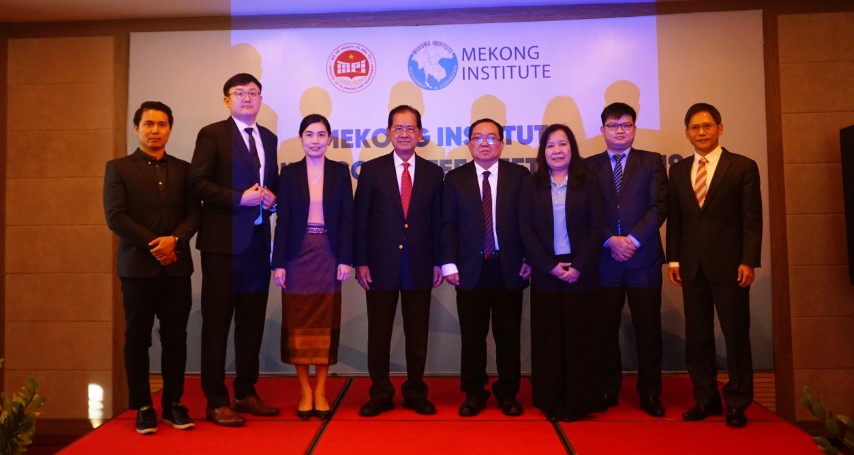High level government officials from Cambodia, P.R. China, Lao PDR, Myanmar, Thailand and Vietnam, as well as representatives from the New Zealand Aid Programme, Asian Development Bank, Hue University and Khon Kaen University reaffirmed support for Mekong Institute’s (MI) work in human resource development and capacity building at the MI Governing Board Meeting in Da Nang, Vietnam.
Co-hosted with Vietnam’s Ministry of Planning and Investment, MI organized the bi-annual 2019 meetings last December 17 and 18, 2019 at the Muong Thanh Grand Hotel.
Government and development partners reviewed MI’s programmatic performance during these meetings. In 2019, MI completed 112 capacity building activities which benefitted 3,270 participants. Moreover, MI alumni conducted 155 trainings and workshops in the areas of agricultural commercialization, trade and investment facilitation and innovation technology and communication. Thus, expanding knowledge sharing to an additional 9,031 beneficiaries across the six GMS member countries.
GMS country representatives reported these investments helped deepen connectivity, collaboration and community in the region. Mr. Yang Shaocheng, Chief of the Regional Cooperation Office representing the Foreign Affairs Office of the People’s Government of Yunnan Province disclosed favorable feedback from Chinese professionals who completed the Mekong Institute Young Scholars Program.
While Mr. Than Aung Kyaw, Director General of the Foreign Economic Relations Department under Myanmar’s Ministry of Investment and Foreign Economic Relations shared that MI’s RLED-EWEC project contributed to national peace building as the project enhanced economic opportunities and cross-border facilitation among farmers, traders and business groups in ethnic minority areas in the country.
In a testament of confidence towards MI’s work in the region, Cambodia and Myanmar increased its annual contributions to the international intergovernmental organization, while other member countries such as P.R. China and Thailand intensified its partnership with MI so more beneficiaries can gain from MI’s technical trainings in program management, technological innovation, monitoring and evaluation, on-the-job trainings, among others.
In 2020, MI will roll out 22 programs and projects that are estimated to benefit 1,157 participants from Cambodia, P.R. China, Lao PDR, Myanmar, Thailand and Vietnam. MI will also formulate its 2021 to 2025 Strategic Plan and further enhance its institutional and financial management to provide stronger capacity building support in the region.








